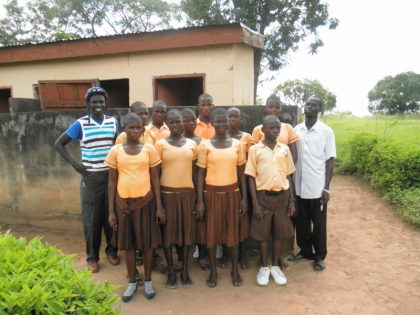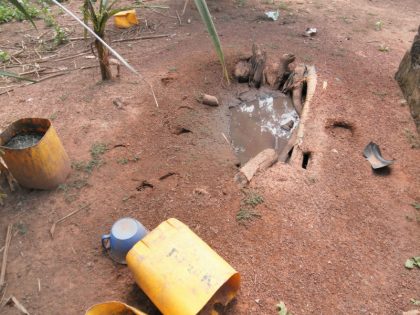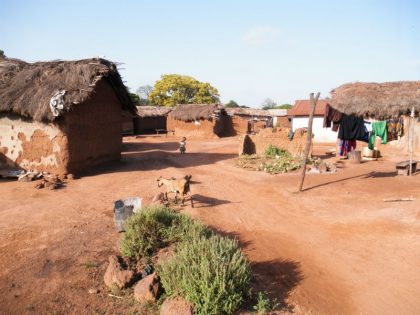 Location
Location
Balai village, Kpandai District, Northern Region of Ghana, West Africa
Community Description
Balai is a pastoral village of approximately 2,000-3,000 residents. It is located in the northeast of the Northern Region of Ghana. Balai village is made up Nawuri people from Kpandai District. According to many people, Balai village is the birth place of all Nawuri people.
Balai is a farming village. Almost 98% of the population consists of subsistence farmers. The main source of income comes from farming yam, maize and cassava. The rustic and rural village has no electricity or constructed road and half of the houses in the village are made of thatch grasses and local mud.
The village has two boreholes. The closest borehole has been broken for two years ago. The village has no money to buy the broken part to fix the borehole.
 The second borehole is a mile walk away. During the dry season it has a low content of water, creating a challenge for the village.
The second borehole is a mile walk away. During the dry season it has a low content of water, creating a challenge for the village.
Balai has one primary school and one junior high school and both are located near the village, just beside the main unconstructed road. Balai Junior High School serves three nearby villages. The student population is approximately 350. It has form one, two and three students. Currently, the school is growing and the latrine facilities are beyond their capacity.
The low primary school has no latrine facility so they also use the junior high school facilities. Presently, some students openly defecate behind nearby bushes because of lack of latrines on the school ground.
Project Description
This project is to build a pit latrine for the lower primary school students.
The latrine will have three stalls, one each for girls, boys, and teachers.
 The latrine will be approximately 14 ft x 7 ft, with a height of 8 ft. A rectangular pit will be dug by the students of the primary and junior high schools. It will be about 6 m by 4 m, with a depth of 4 m.
The latrine will be approximately 14 ft x 7 ft, with a height of 8 ft. A rectangular pit will be dug by the students of the primary and junior high schools. It will be about 6 m by 4 m, with a depth of 4 m.
Because of the heavy rainy season, the pit will be lined with concrete.
The lining, building foundation, and concrete blocks will be done by a local skilled mason.
The mason will build concrete squat slabs, with vent holes, to cover the pit.
The walls will be built using a local plywood frame. A door with a security lock will be installed for each stall.
The mason will fix wood beams and build a roof with zinc sheets.
Water Charity funds will be used to purchase materials, including cement, some of the zinc sheets, and some of the wood. They will also pay for the skilled labor and the transport of the materials from the regional capital to village.
The school will contribute some of the zinc sheets.
The community partnership will contribute by collecting gravel, helping masonry and carpenter during the building, bringing water to make blocks, and a container for the hand washing station.
The Parents Teacher Association will contribute some of the wood for the roofing.
The students will use their creativity to paint the outside of the latrine.
In addition to the elementary school latrine construction, the junior high school pit latrine will be pumped out and cleaned.
Any leftover funds will be used to buy the parts needed for the repair of the borehole pump.
An additional project planned by the community is to build a pit latrine for the use of the villagers.
School hygiene training will focus on the community-led total sanitation concept and an understanding of the consequence of the diseases caused by open defecation.
Teachers and an environmental health and sanitation officer will monitor and evaluate the progress and sustainability of the project.
Project Impact
350 students will benefit from the project.
Peace Corps Volunteer Directing Project
Nhial Malia
Comments
This is part of a district-wide program of Kpandai District to help as many communities as possible to achieve Open Defecation-Free Status. 14 communities have reached this status to date. The program involves
mobilizing the community and facilitating behavior change so that each community can solve its own sanitation, water, and health issues collectively.
Dollar Amount of Project
$ 550.00
Donations Collected to Date
$0.00
Dollar Amount Needed
$0.00 – Terminated
The PCV left the country before this project could be implemented. There was no expenditure of funds.